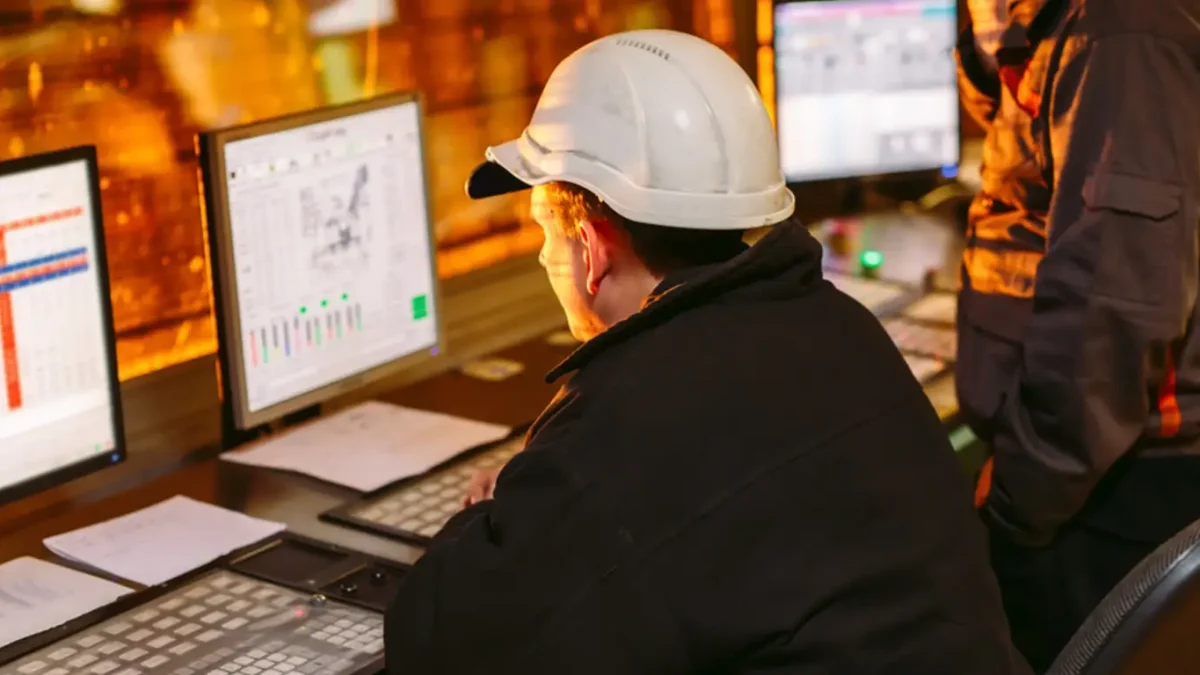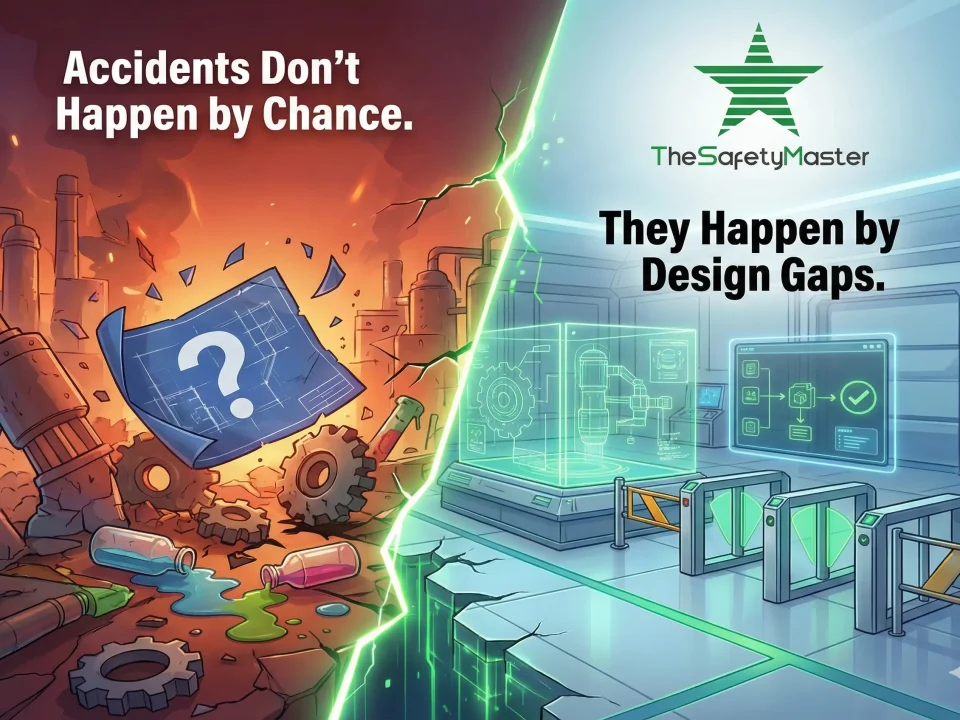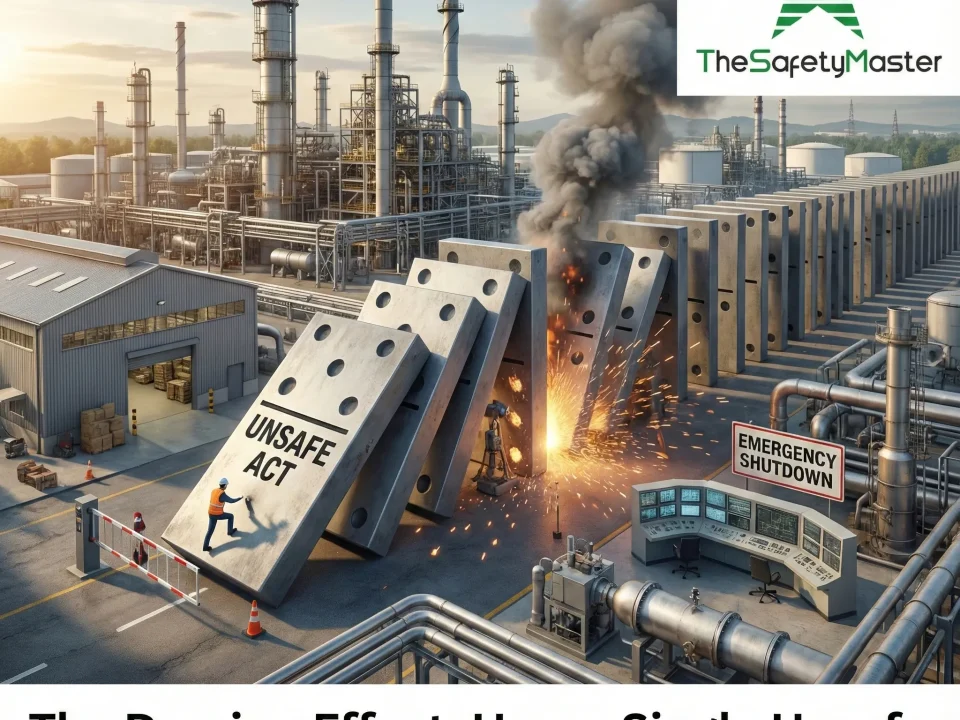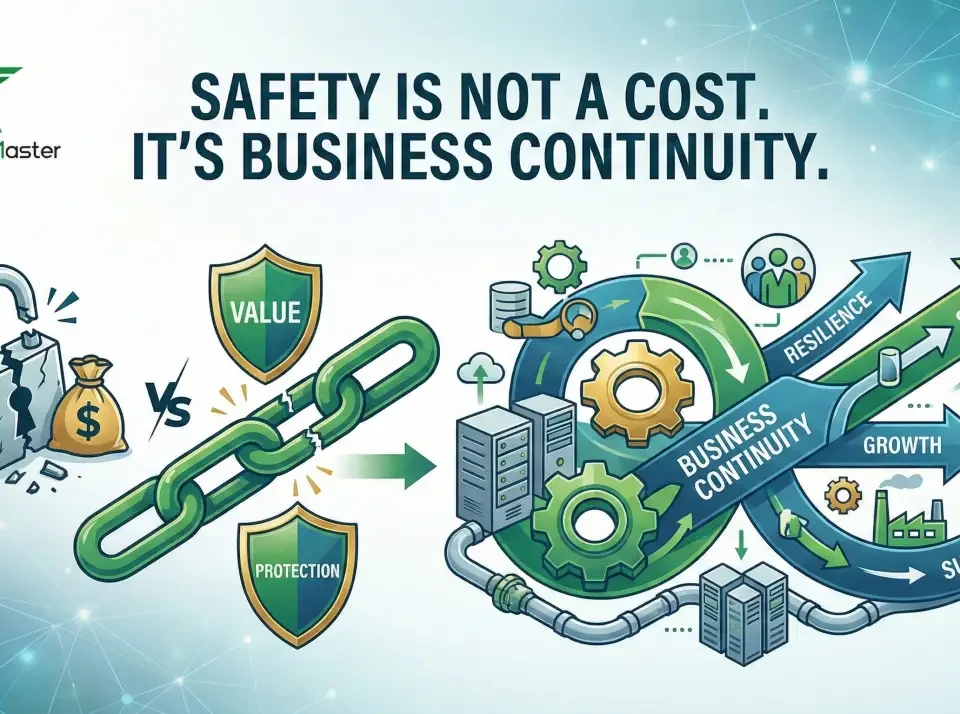Why a Safety Audit is Non-Negotiable in Jaipur’s Industries

Donning and Doffing PPE: Proper Order, Meaning, and Best Practices for Using Personal Protective Equipment
October 31, 2025
Fire Audit, Behavioural Safety & Full-Spectrum Safety Consultancy: What Delhi NCR Organisations Should Prioritise in 2025
November 4, 2025In Jaipur’s vibrant economy—manufacturing units, construction sites, and service-business setups alike—the need for a rigorous, periodic safety audit in Jaipur is higher than ever. A “safety audit” isn’t just a compliance checkbox; it’s a strategic investment. Here’s why industries of all kinds in Jaipur must engage a professional safety audit now.
1. The Changing Local Landscape of Regulations
Even if you’ve been compliant in previous years, several factors mean your current exposure may be larger than you think.
- The national umbrella law of Factories Act, 1948 still governs core factory safety obligations: for example the occupier/manager must ensure “safety of buildings and machinery” etc.
- In Rajasthan, the state has introduced amendments via the Rajasthan Factories (Amendment) Rules, 2025. These new rules emphasise things like heat-stress monitoring, safety training, protective equipment for women in specified hazardous processes, air monitoring and so on.
- Under the Rajasthan Factories Rules, 1951, health monitoring for workers exposed to dangerous processes is mandatory (Rule 97-H).
- The state’s move to allow third-party safety inspections under its inspection scheme shows the government is serious about external oversight.
In short: your factory, construction project, or service centre in Jaipur cannot assume “we’ve been safe so far” means things are fine for 2025. Regulations are moving, enforcement is becoming more visible, and the cost of non-compliance is growing.
2. Why Periodic Safety Audits Matter Across Industry Types
Regardless of whether you are in manufacturing, construction, or offer services, a systematic safety audit offers key benefits. Let’s break this down for the three major sectors in Jaipur.
Manufacturing Sector
Factories in Jaipur face multiple hazards—machinery, process heat, chemicals, ergonomic issues, workplace layout, etc. A professional workplace safety inspection identifies gaps you might be blind to.
- A safety audit under the Factories Act framework will check things like machine guards, safe workflow, ventilation, lighting, signage, etc.
- Also, from an operational viewpoint: audits help you identify process inefficiencies, potential downtime triggers, equipment misuse, training gaps. For manufacturing, that matters because a safe factory is usually a more productive one.
Construction Industry
Construction sites in Jaipur pose high-risk exposures: working at height, scaffolding, temporary power supplies, structural hazards, mobile equipment, dust/particulate hazards. A safety audit here is vital because one serious accident can cost lives and liabilities.
A periodic safety audit Jaipur ensures you’re not just ticking boxes but proactively safeguarding.
Service Industry
You might think service industry is low risk compared to manufacturing, but think again: whether it’s a large service facility, a hospitality unit, a business process centre, or a call-centre complex, hazards exist (electrical issues, fire safety, slip/fall hazards, ergonomic risks, mental-health risks).
A industrial safety consultant in Jaipur can tailor the inspection to your context, flag non-obvious hazards (e.g., emergency evacuation paths, worker fatigue, subcontractor risk).
3. What a Professional Safety Audit Delivers
When you hire a competent industrial safety consultant in Jaipur (versus a casual self-check), the value they bring includes:
- An independent, expert review of your physical hazards: machines, processes, layout, utilities, chemicals, fire-protection, ergonomics.
- A detailed check of documentation and systems: safety policies, training records, PPE issuance, incident-reporting systems, emergency drills.
- Gap-analysis relative to the applicable regulations and standards: e.g., Factories Act provisions, Rajasthan rules, plus voluntary standards like ISO 45001.
- Action-oriented recommendations: not just “you’re non-compliant”, but “here’s where you need to invest, train, redesign, monitor”.
- A plan for periodic follow-up: safety is not once-and-done, but needs continuous improvement.
4. The Role of ISO & International Best Practices
Adopting or benchmarking against ISO 45001 helps you lift your safety systems above minimum compliance. That matters in a market like Jaipur where industries are becoming more competitive, looking for export opportunities, and clients expect higher safety standards.
- ISO 45001 gives you a framework to systematically identify hazards, assess risks, implement control measures, and continually improve.
- Compliance and certification can enhance your reputation with clients, insurers, employees.
- In audits, professional consultants will check not just legal compliance but alignment with these best practices—so you’re future-proofing.
5. Specific Local Risks in Jaipur & Why They Increase the Need
- Jaipur and Rajasthan’s climate means heat-stress is real in many manufacturing/process units. The 2025 Rules emphasise heat-stress monitoring and protective measures.
- Labour force shifts: in construction and service sectors there’s often a transient workforce, untrained, informal. That increases hazard risks unless properly audited.
- Regulatory scrutiny is accelerating: the state factory inspectorate and fire-safety authorities are paying closer attention. If you wait until a mishap happens, you’ll be reacting rather than preventing.
- In Jaipur’s manufacturing clusters, issues like dust, fumes (in, say, sheet-metal, foundry, stone-cutting) are real—health hazards that may not be obvious until you audit.
6. Cost Implications & Business Benefits
Let’s be real: you might push back thinking “Do we really need this audit now? Isn’t it just cost?” I’ll challenge that logic. The cost of not doing it is much higher.
- Preventing accidents means avoiding downtime, compensation, reputational damage. ISO 45001 auditors highlight that audits reduce incidents and hence costs.
- A proactive audit helps you catch small problems before they become major disruptions—saving money, not just lives.
- From a market perspective: clients, buyers, insurers increasingly consider safety record. You raise your credibility (especially if you integrate standards like ISO 45001).
- Legal liability: if something happens and you’ve not done due-diligence (audit, training, inspection), you’re exposed. That risk can be catastrophic.
- Insurance premium benefits: safer workplaces often attract better terms.
- Employee morale and retention: when workers see you care about safety, they’ll be more engaged, more productive.
7. How to Choose & Work With an Industrial Safety Consultant in Jaipur
Here’s a practical checklist (because words are cheap—how you choose matters). When hiring a safety consultant:
- Ensure they have credentials, experience in your industry (manufacturing, construction, service) in Jaipur / Rajasthan context.
- They should reference local regulations (Rajasthan’s rules including 2025 amendments) and international standard frameworks (ISO 45001).
- They should offer a full safety audit + written report + gap‐analysis + actionable recommendations + timeframe.
- Ask for references (other clients in Jaipur).
- Make sure the scope is clear: from physical hazards to systems/processes/documentation/training.
- Ask about follow-up: will they help you implement recommendations, train workforce, monitor improvements?
- Ensure cost vs value: audit cost is far less than risk of accident or regulatory penalty.
8. When & How Often Should Audits Happen?
Just doing one audit and marking it done is naive. Here’s a practical cadence:
- At least once annually for most industries in Jaipur, but high-risk setups (heavy manufacturing, construction sites, chemical processing) may need twice or even quarterly mini-inspections.
- Additionally: whenever you change major equipment, launch new process, add shifts, change workforce mix, or after a near-miss/incident.
- Use the professional safety audit as the annual full check, then smaller follow-ups or internal inspections in between.
9. Pulling It All Together: Why Now in 2025
We’re in 2025. Rajasthan’s regulatory framework just got tighter. Industries in and around Jaipur are scaling up, more international linkages, greater scrutiny. If you wait until something goes wrong, you’ll be paying from the reactive side—not the proactive side. A professional safety audit Jaipur isn’t optional; it’s business-critical.
Hiring an industrial safety consultant Jaipur now means you get ahead of compliance, mitigate risk, boost reputation, and build a culture of safety before the inspector knocks or the incident happens. A proper workplace safety inspection now pays dividends tomorrow.
Summary
To sum up (and I won’t sugar-coat it): if you’re running an industrial, construction or service business in or around Jaipur and you haven’t scheduled a detailed safety audit this year, you’re gambling. It’s not enough to assume “we’re okay” or rely on old‐checks.
The patchwork of regulation is changing fast; hazards evolve; your workforce and processes evolve; the market expectation evolves. A professional safety audit in Jaipur guided by a qualified industrial safety consultant will identify unseen risks, close compliance gaps, boost productivity, enhance reputation and most importantly protect lives.
Don’t wait. Do it now.




